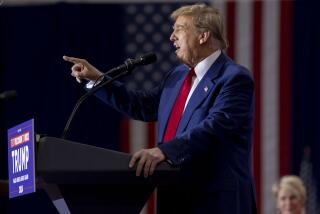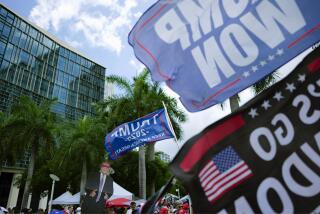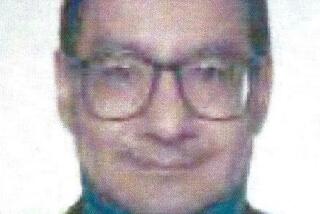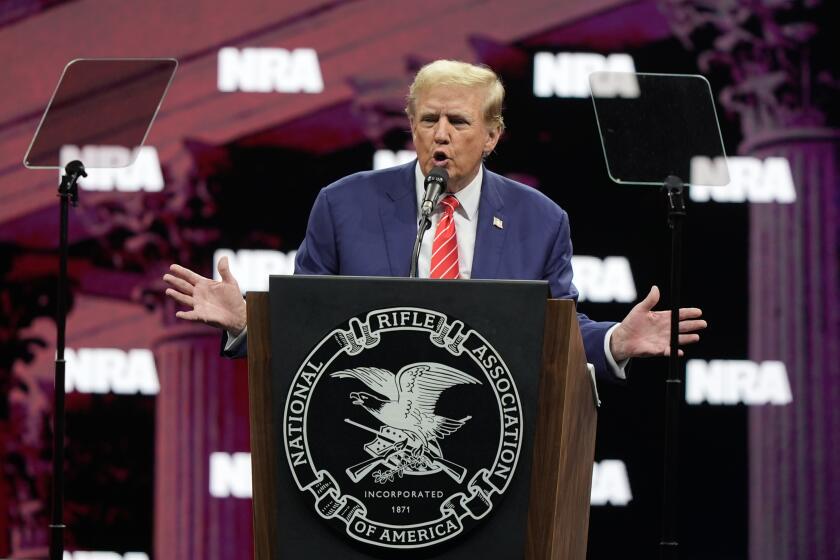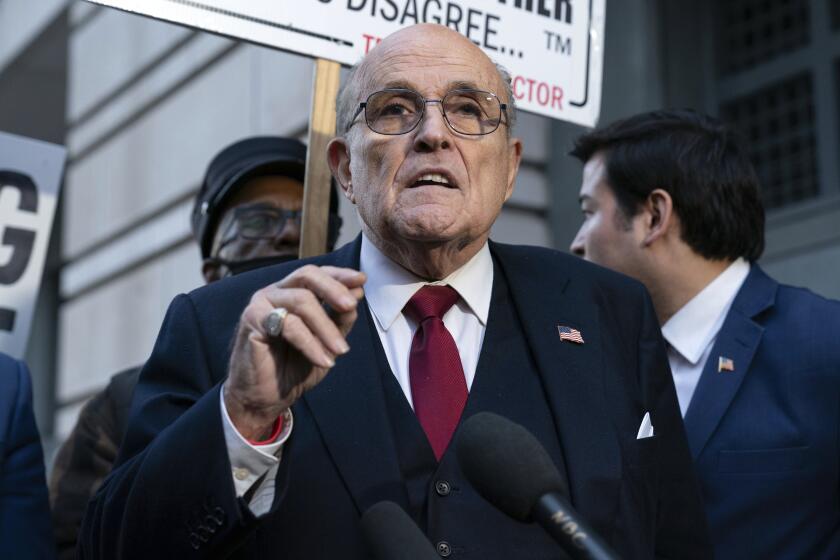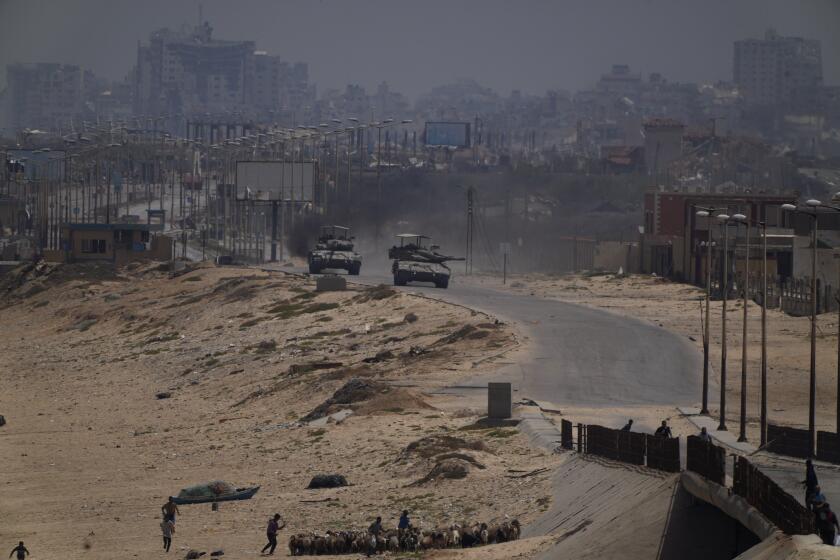Deliberations to Begin in Clair George Perjury Case : Iran-Contra: In his second trial, the ex-CIA official is accused of falsely denying knowledge of the arms deals.
A federal court jury received the perjury case against former CIA official Clair E. George late Thursday after a prosecutor told jurors that George had lied to congressional investigators about his extensive knowledge of Iran-Contra matters.
“He had sent information over to the national security adviser at the White House, but I guess the information was not good enough to tell the Congress of the United States,” prosecutor Craig Gillen said sarcastically.
Gillen contended that George falsely denied knowledge in 1986 about the activities of then-White House aide Marine Lt. Col. Oliver L. North and his assistant, former Air Force Maj. Gen. Richard V. Secord.
But George’s defense attorney, Richard A. Hibey, told jurors in his closing argument that the questioning of his client on Capitol Hill was done poorly and imprecisely. “You can’t convict Clair George for answers he didn’t give to questions that were never asked,” Hibey said.
He acknowledged that George, who subsequently retired from the CIA, had an obligation to be truthful in his testimony. “But he had no obligation to volunteer information,” Hibey said, particularly at a time when the Ronald Reagan Administration was locked in a policy dispute with congressional Democrats over support for the Nicaraguan resistance movement.
Capping a monthlong trial, the second one for George, a jury of eight women and four men received the case from U.S. District Judge Royce C. Lamberth, who immediately excused them for the night. They will begin their deliberations this morning.
George, 62, originally was tried on nine counts of misleading Congress and federal grand jurors about his knowledge of secret U.S. arms-for-hostages sales to Iran, and the illegal diversion of the proceeds to guerrillas fighting the leftist government of Nicaragua. That case ended in a mistrial on Aug. 26.
Because a majority of the jury said they favored acquittal, Hibey urged independent counsel Lawrence E. Walsh to abandon the case. But Walsh chose to try George a second time after dropping two counts charging obstruction of Congress. George’s current trial on seven counts began Oct. 19.
Gillen told jurors that House and Senate committees had a right to receive truthful testimony from George “because they were engaged in a truth-seeking process--they were trying to find out what had happened after an American crew was shot down ferrying arms to the Contras in October, 1986.”
Members of Congress, he noted, had heard rumors that North, then a top aide in the National Security Council at the White House, had been involved in raising private money for the Nicaraguan rebel movement and possibly had supplied them with weapons. But even more questions arose, Gillen related, after an American civilian, Eugene Hasenfus, survived the shooting down of his private plane and was captured by the Nicaraguan government.
In that atmosphere, George was summoned to Capitol Hill as the CIA’s chief of overseas spy operations and told congressmen and senators that “we do not know who was behind that flight . . . or any other flights,” Gillen told the jury.
“He knowingly gave a false statement,” the prosecutor said. “He said all he knew was what he read about it in the newspapers--the head of the spy network for the United States worldwide!”
Gillen said George’s testimony at that time was “part of the denials by the Reagan Administration” that it was violating a government-wide ban on aid to the Contras known as the Boland Amendment.
Several months later, when the scandal had begun to unfold publicly, George admitted in the summer of 1986 that North had called him and discussed the secret resupply network being run out of the White House, the prosecutor said.
Hibey, insisting that George was innocent of criminal wrongdoing, said: “He wanted the whole Hasenfus issue reviewed before he went running up to Congress. Never mind that Congress wanted to know everything, you cannot possibly give Congress every rumor, every hearsay, every item of gossip--unchecked and unverified.”
The defense lawyer added that George was a patriot who “served seven presidents over 33 years in a business that is hard and difficult and where danger lurks at every turn. He was not a political appointee.”
“What you have,” he added, “is the criminalization of a man who made cautionary comments to Congress, who was confused by some things, wanted to check them out and made some honest mistakes.”
More to Read
Start your day right
Sign up for Essential California for news, features and recommendations from the L.A. Times and beyond in your inbox six days a week.
You may occasionally receive promotional content from the Los Angeles Times.
